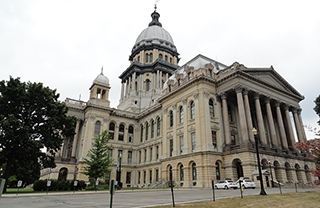
SPRINGFIELD, IL — As the SAFE-T Act remains in legal limbo, some are concerned about the added costs the law will be put onto the Illinois justice system at the local level.
Illinois is set to become the first state in the country to eliminate cash bail on Jan. 1. In Illinois, 10% of a suspect’s bail is used to fund segments of the legal system.
Kirk Evans, president of the self-defense organization U.S. LawShield, said less bail money being paid will have an effect on county court systems around the state.
“The court systems themselves are now going to be hit with a funding decrease, while at the same time, having to have more hearings and more activity surrounding this cashless bail,” said Evans.
Proponents have said the legislation is not flawed and shouldn’t be altered, even with the added costs.
“Members of our network, along with legislators and multiple stakeholders, advocated tirelessly to pass together the Pretrial Fairness Act, which is a well thought out and data driven solution that ends money bond while protecting our communities,” said Briana Payton of the Illinois Network for Pretrial Justice.
State Rep. Chris Bos, R-Lake Zurich, said the law is going to force some communities to raise property taxes to cover the extra costs.
“In many cases, probation departments will need additional pretrial staff to supervise the increase of those released from jail,” said Bos. “There will also be enormous IT needs.”
A Kankakee County judge is expected to hear oral arguments next week on dozens of combined lawsuits challenging the legality of the SAFE-T Act.
The lawsuit alleges the SAFE-T Act violates the separation of powers and improperly amended the state Constitution. It also claims Democratic lawmakers who passed the law violated a rule that requires them to read bills on three different days in each legislative chamber.
